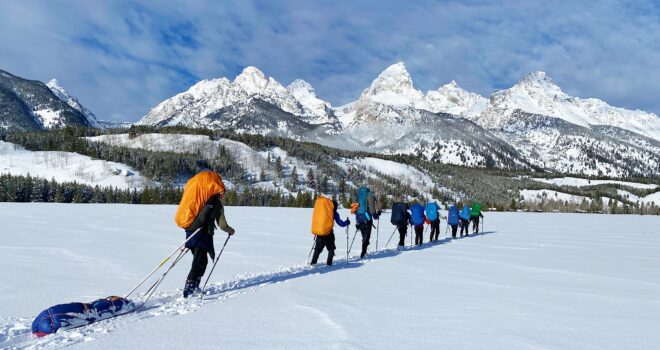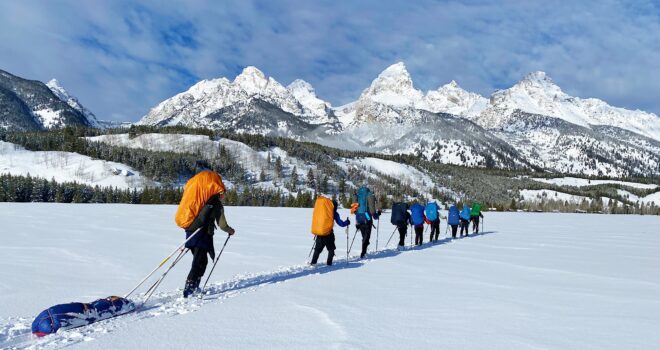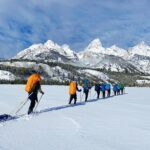The Pursuit
Six years ago I was standing beneath a blue sky in a mountain wilderness, a fifty pound pack on my back, worn boots on my feet. So this was the officially most remote place in the lower 48 states? Over 30 miles as the crow flies to the nearest two track dirt road? It did not really matter to me. I and the rest of my group would hike, sweat, set up camp, eat, and sleep just like we had been for the past week and a half. It’s not like an iPhone or internet reception mattered: we didn’t have any devices to connect.
What was I doing, you might ask? Just midway through freshman orientation at Wyoming Catholic College (WCC). That’s all. And this year’s freshmen—the class of 2027—are doing just the same this August.
With a student body of only 190, Wyoming Catholic draws students not only from around the USA, but from overseas as well—to do what? Study the ancient classics like Aristotle, Homer, or Augustine of Hippo, memorize poetry, learn to speak in Latin and…backpack, rock-climb, and sleep in snow-igloos!
While a lot of this is fun, most of it is pretty hard as well. But good things are hard. And “the good” is one of the things we at Wyoming Catholic are trying to pursue. I pursued it in highschool; as a WCC student; in other jobs, states, and countries. Now I’m back at WCC again, pursuing it this time as a staff member.
What does this “pursuit” look like for our students?
Turn Down the Noise
First, students turn down the noise produced by technology. “How do you know something’s effect on your life if you’ve never lived life without it?” asks Olivia Jones (‘22). “I’d just not been seeing,” rising junior Anna Tabling (‘25) told Catholic Exchange. “The technology policy is one of the most enchanting and beautiful parts of the college.”
The devastating effects of the technological tsunami of the past decade are beginning to hit the secular researchers and educators. In another recent article, WCC alumna Abigail O’Brien (‘23) recalled that the idea of a college without phones was “almost impossible to picture” and therefore immediately applied after discovery that WCC had such a policy.
Students are not allowed to have any mobile devices during the school year. Personal laptops are allowed for research, writing papers, checking email, and various recreational uses like watching movies; however, they are never allowed in the classroom.
Decades before mobile devices were invented, philosopher John Senior realized that technology was divorcing modern men from the real. Senior’s insights on human interaction and mentorship deeply WCC’s founding principles. Alumna Mary Frances Flood (’19) countered a common critique of the tech policy. She said “Many people are skeptical of the technology policy, thinking that WCC graduates will be ‘out of touch’ and not know how to use the technological tools that are necessary in most workplaces today. I think quite the opposite is true. As John Senior said, ‘technology must be re-geared to the proper dimension of the human good.’ In other words, we need to be able to use the tool rather than the tool manipulating us. By ‘fasting’ from the latest trends in technology and immersing ourselves in those true and beautiful things that are proper human goods, WCC graduates are better equipped to use technology without being consumed by it.” The search for good, then, begins at Wyoming Catholic with a setting aside of the bondage of technology in preparation for a new pursuit: the wild.
Embrace the Wild, Discover the Truth
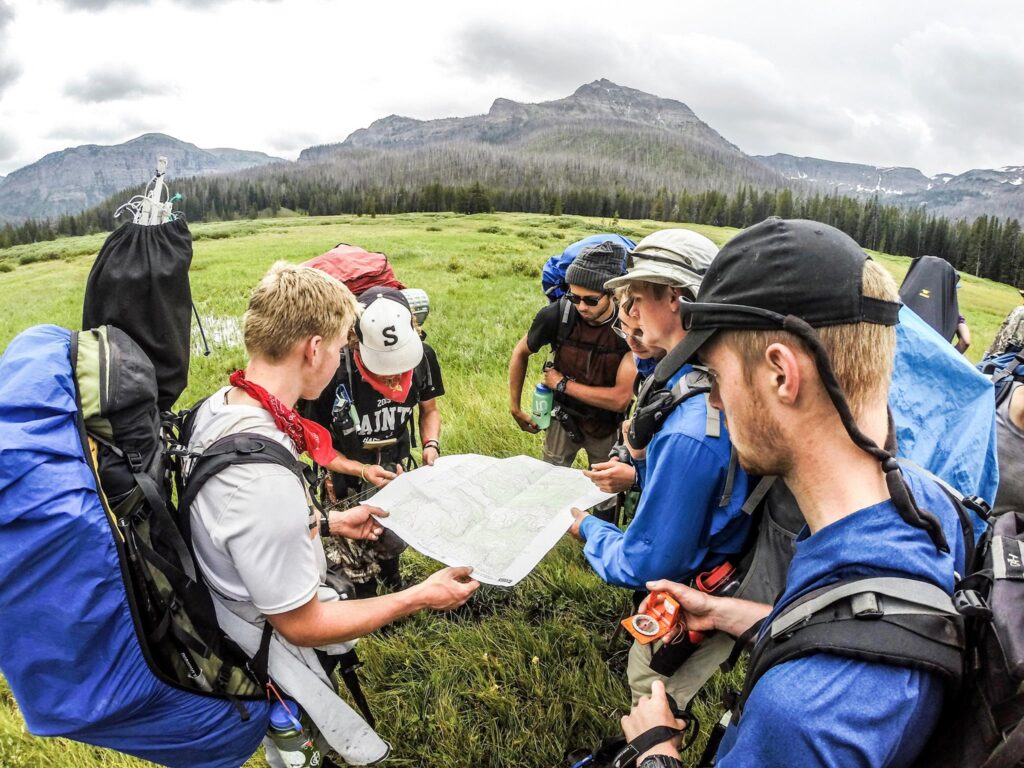
Without the opportunity to zone out on their phones, students can now “zone in” on something more important than a flickering screen: rugged reality. As mentioned above, Freshmen “orientation” is a 21 day backpacking trip in the wilderness. “I know of nowhere else where you will get a chance at such a thorough hands-on experience of the beauty of the created world, the fragility and strength of man, and the gift of relationship with God and the friends He’s given you,” said Sophia Michael (‘20). Karl Eby (13), who now works in the College’s outdoor program, told me that the program made the rest of his education “something that could not just be stuck” in his head. Instead, “it grew in my heart and bore fruit in my life and actions.”
But WCC is a liberal arts college, not just an extended outdoor adventure camp. Back from the wilderness, students dive into theology, philosophy, and literature courses. “Theology may teach us to serve God, or Philosophy to think of Him, but the Humanities allows us to glimpse the overarching narrative of human history, and understand that we ourselves, and those around us today, are not so different from Spartans, Romans, or the crew of the Pequod after all,” said Ciely Daly (’22), herself a Spartan Trifecta World Champion. Immersion Latin, art history, rhetoric also form integral parts of the curriculum, all of which contribute helping students think clearly, and understand where they and their world have come from and where they might be heading.
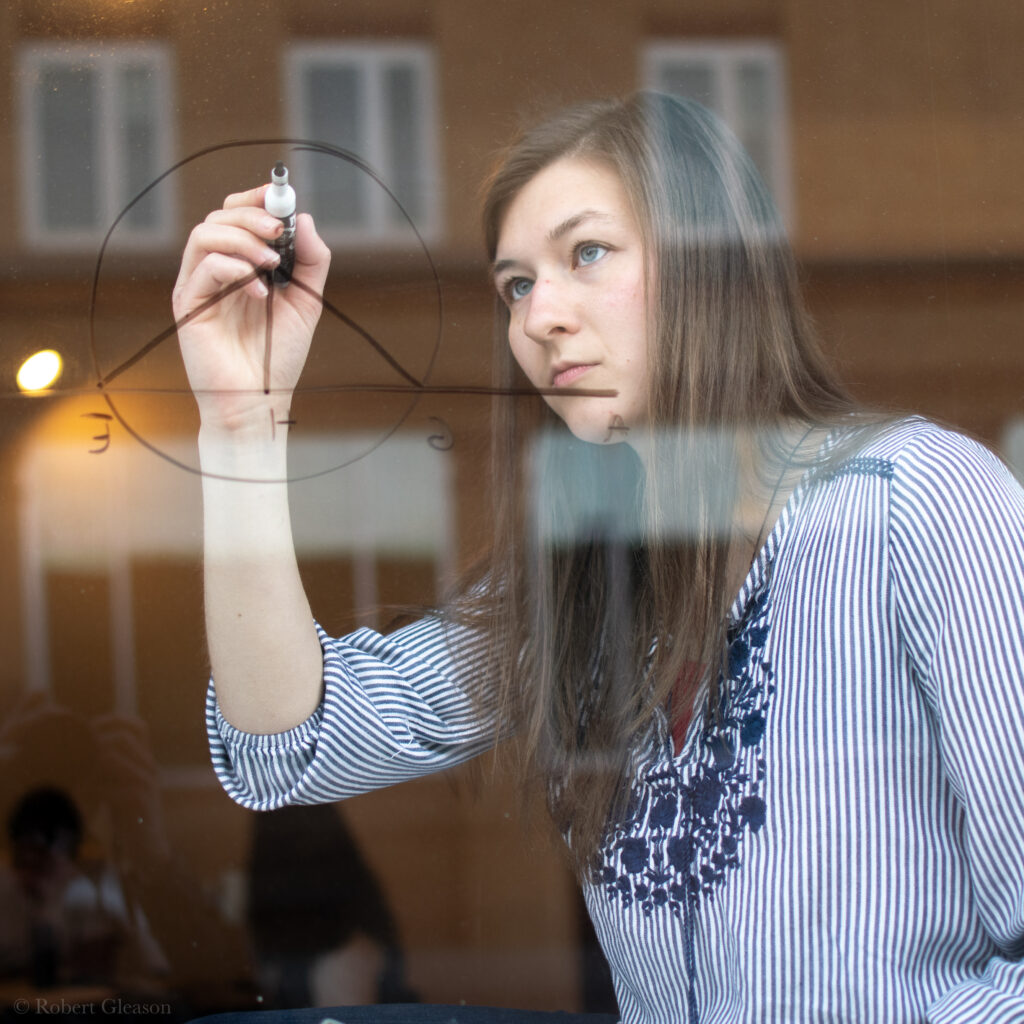
Mind, body, spirit: these are the three facets of the human person WCC tries to form. When it comes to spirit, neither the theology class-room nor the wilderness are the only places to encounter God. “Welcome to the most interesting place to do theology in North America!” Olivia Jones exclaimed. “Only at WCC can you learn from scripture and years of St. Thomas Aquinas while simultaneously experiencing a full Byzantine liturgical life.” Students have access to the Tridentine Latin Mass, the Novus Ordo, and the Byzantine Catholic tradition. Breathing with “both lungs” of the Church’s liturgical tradition, the Chaplaincies of Wyoming Catholic often introduce students to some of the Church’s traditional liturgies for the first time. Emma Roberts (‘20) remembers an experience of her freshman year. “I was in class and then going to the Latin Mass,” she said, “and I remember sitting in Mass freshman year, and suddenly realizing that I had understood a couple of sentences and thinking, ‘Wow, it is a living language!’”
As John Walsh, a rising senior, recently wrote: “My time in Wyoming taught me that it is not within a carefully curated National Park or inside a commercialized art gallery that we have the most powerful experiences of beauty. No—beauty is in the normal places, the dirt roads and muddy fields of this unexpectedly miraculous planet.” Part of the “wild pursuit” at WCC involves discovering transcendence in the realities before us. “Here we must be creative,” Karl Eby pointed out.“Here we must communicate face to face. Here we must seek for the truths that Google does not know.”
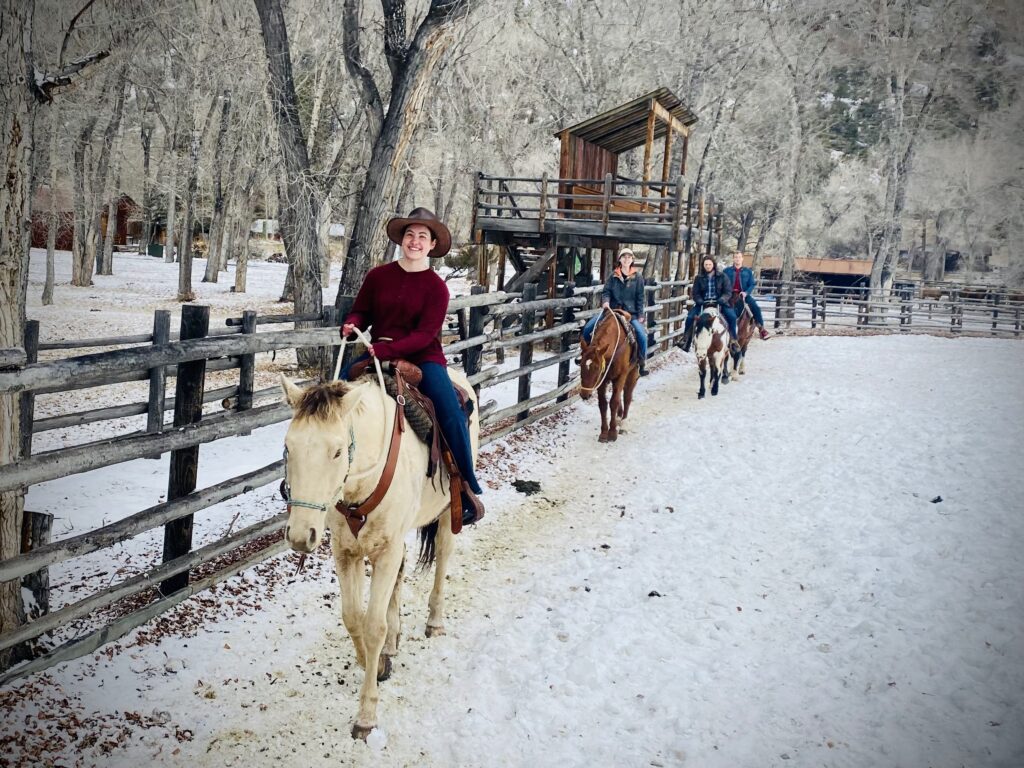
A few weeks ago our new freshmen got ready to enter the wilderness, packing food, prepping gear, and learning wilderness first aid. If they didn’t already know it, the sweat, blisters, and aching shoulders of their trek will soon convince them that reality cannot be airbrushed. Yet so will the breath-taking vistas, sunsets, and wildlife. I remember one day in particular, climbing a pass covered in alpine flowers, rivulets of snow-melt splashing here and there down the slopes. Then we reached the top, and found ourselves looking down on intertwining spurs of the Teton mountains. We must have been at about 11,000 feet of elevation. Across from us, a hundred miles away, the Grand Teton peak pierced the horizon with all of its 13,775 ft. This was a journey to beauty no Microsoft screen-saver will ever match: a wild pursuit, which a new generation begins afresh this fall.
Photos courtesy of the author


